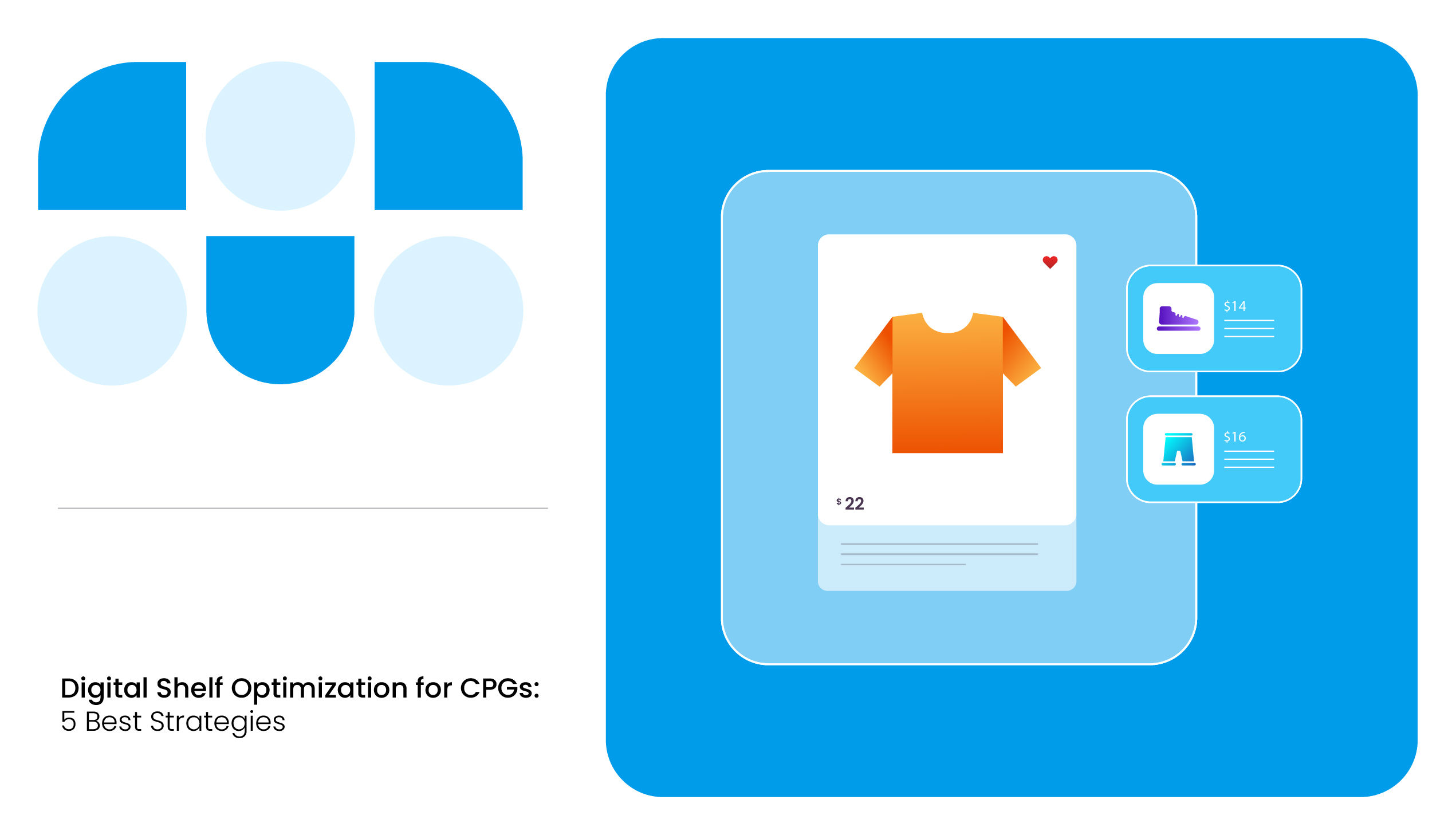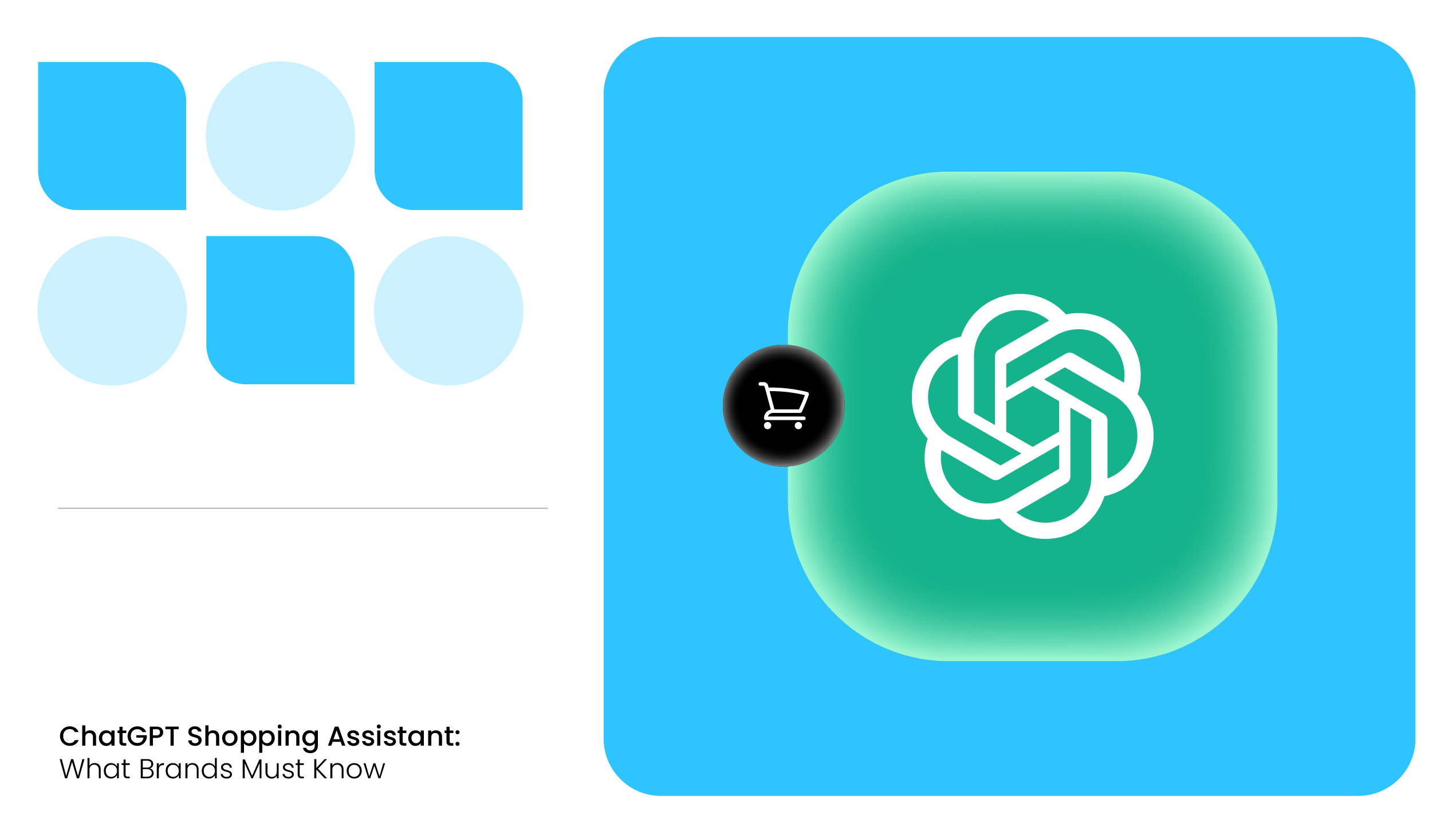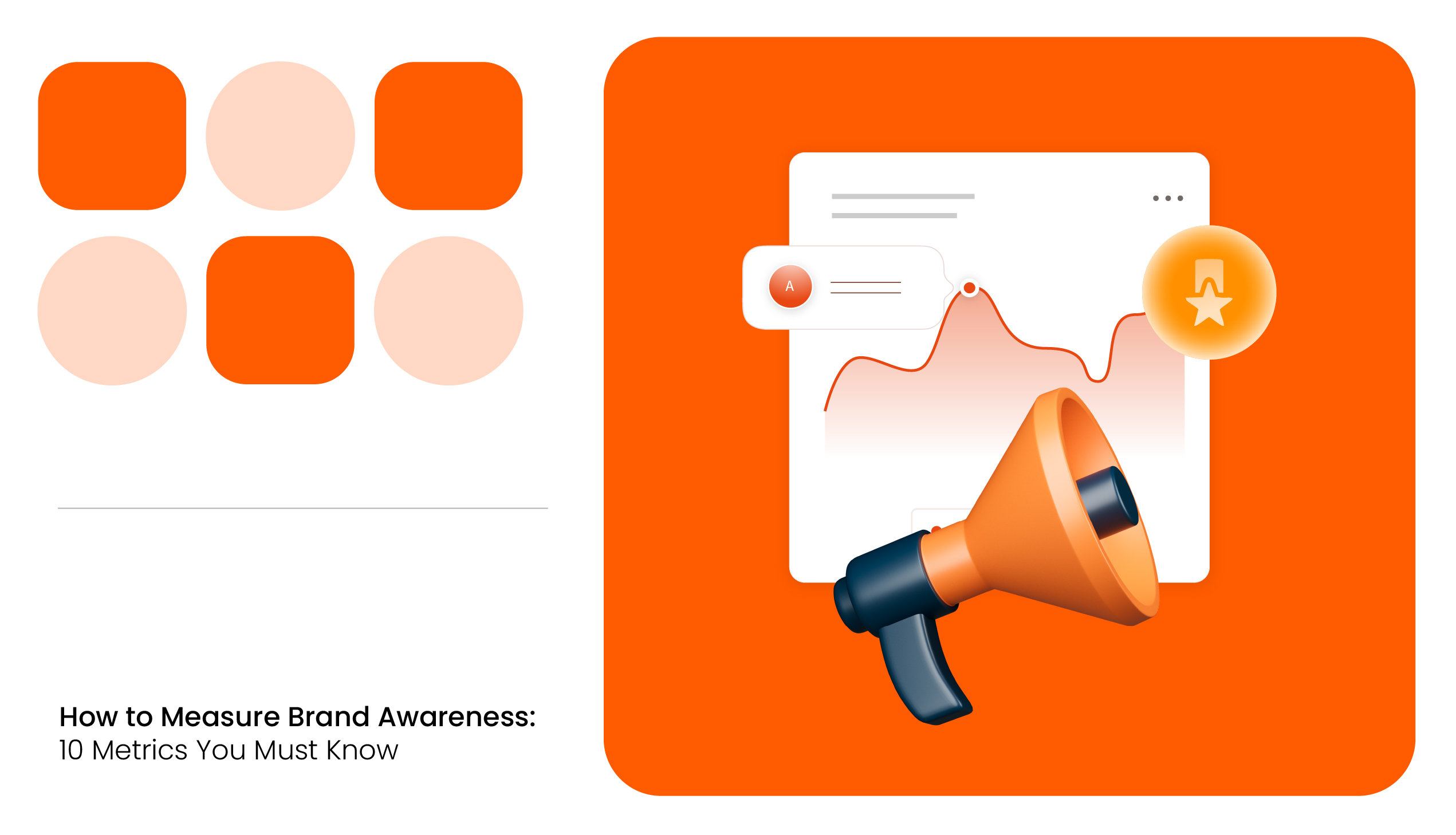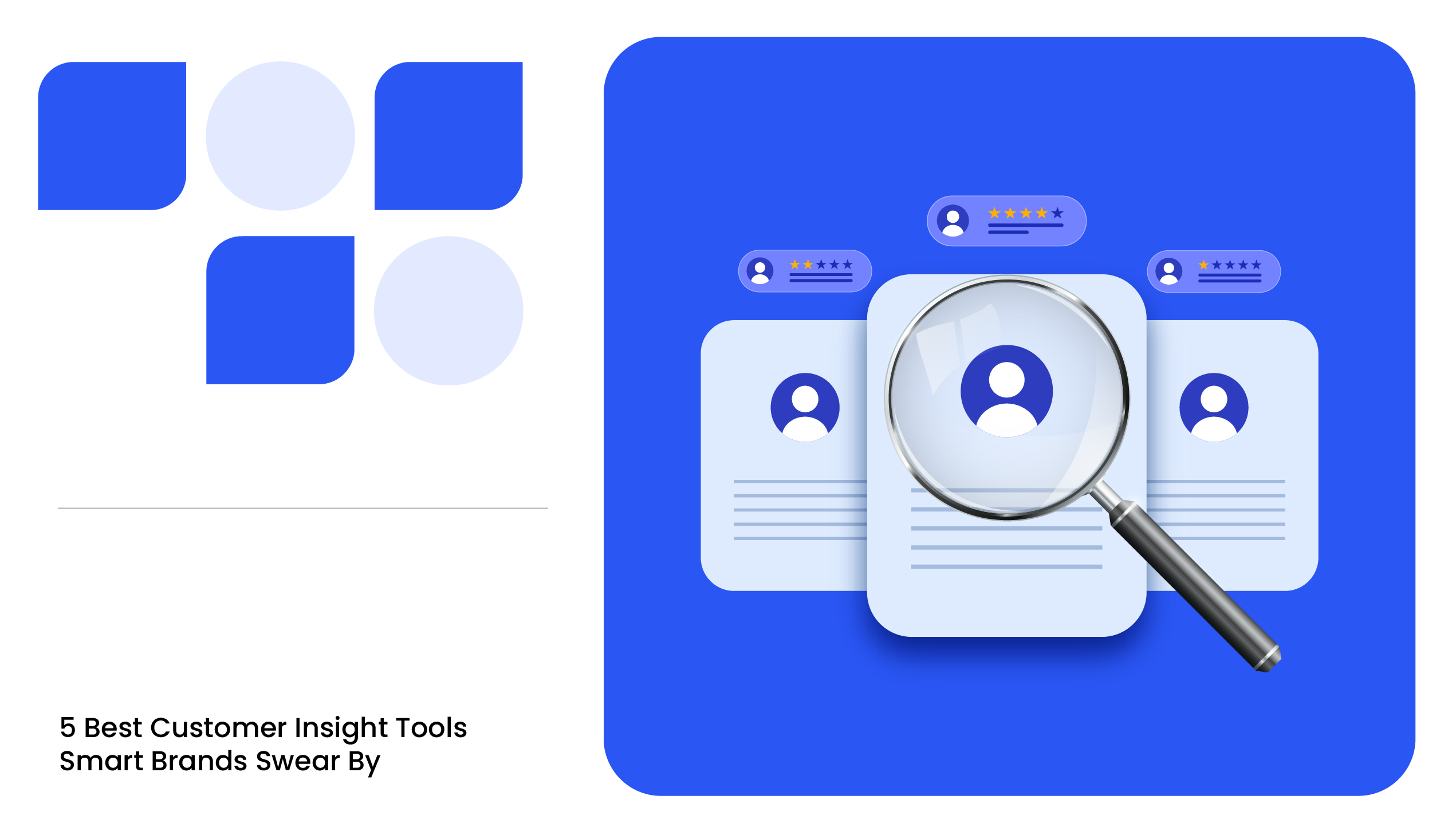E-commerce is becoming increasingly popular in the US. According to Statista, over 84% of US citizens shop online now, which is almost 25% higher than it was two years ago. This is one aspect of modern shopping. Going further, according to a survey by Zhong-Gang, 82% of consumers research products online before making a purchase decision, regardless of whether they buy online or in-store.
All these stats and surveys point to one thing. The first point of influence for today’s consumer is the digital shelf, and optimizing is not just a nice-to-have. It is the foundation for visibility, credibility, and conversion in a market where shoppers are making faster and more informed choices than ever before.
This article explores how you can effectively do digital shelf optimization for CPGs and the best ways to measure the success of your CPG digital marketing solutions.
Why do Digital Shelf Optimization for CPGs
The digital shelf is where most purchase decisions now begin. Shoppers rarely walk into a store without first searching, comparing, or reading reviews online. For CPG brands, this shift means visibility, content accuracy, pricing consistency, and availability across marketplaces directly impact sales performance.
Adding optimization to your CPG brand strategy helps achieve three critical goals:
- Ensures products are easily found when shoppers search online, improving share of search and conversion rates.
- Protects brand equity by maintaining consistent pricing, promotions, and product information across retailers.
- Strengthens shopper trust by ensuring reviews, ratings, and stock availability support the brand promise.
Without optimization, even strong brands risk poor discoverability, higher cart abandonment, and revenue loss.
5 Best Digital Shelf Optimization Strategies for Converting Online Shoppers
Digital shelf optimization for CPGs helps you drive both top-line growth and long-term shopper loyalty. Here are 5 strategies you can use to do it effectively:
Strengthen PDP, Keyword & Search Visibility
There are no impulse aisles in e-commerce. Instead, the digital shelf is the storefront. And just like how the first three search results on Google get the majority of clicks, the top few product listings on the digital shelf win the most sales. If your listing doesn’t appear at the top when customers search online, you’re not just losing visibility but also leaking revenue to your competitors.
So, here’s how to enhance the visibility of your CPG digital shelf products:
- Optimize product titles and descriptions: Include high-intent keywords that reflect how customers actually search. For example, a shopper may search “sugar-free protein bar” instead of just “protein bar.”
- Use high-quality images and videos: Clear visuals, multiple angles, lifestyle shots, and short demo videos increase engagement and trust.
- Leverage backend keywords: Platforms like Amazon allow hidden search terms that help your product surface in more queries without cluttering the PDP.
- Monitor share of search regularly: Use digital shelf analytics tools to track your visibility compared to competitors. Adjust your keywords and content to close gaps.
- Keep content consistent across retailers: Inconsistent product information confuses both shoppers and search algorithms, lowering your chances of ranking high.
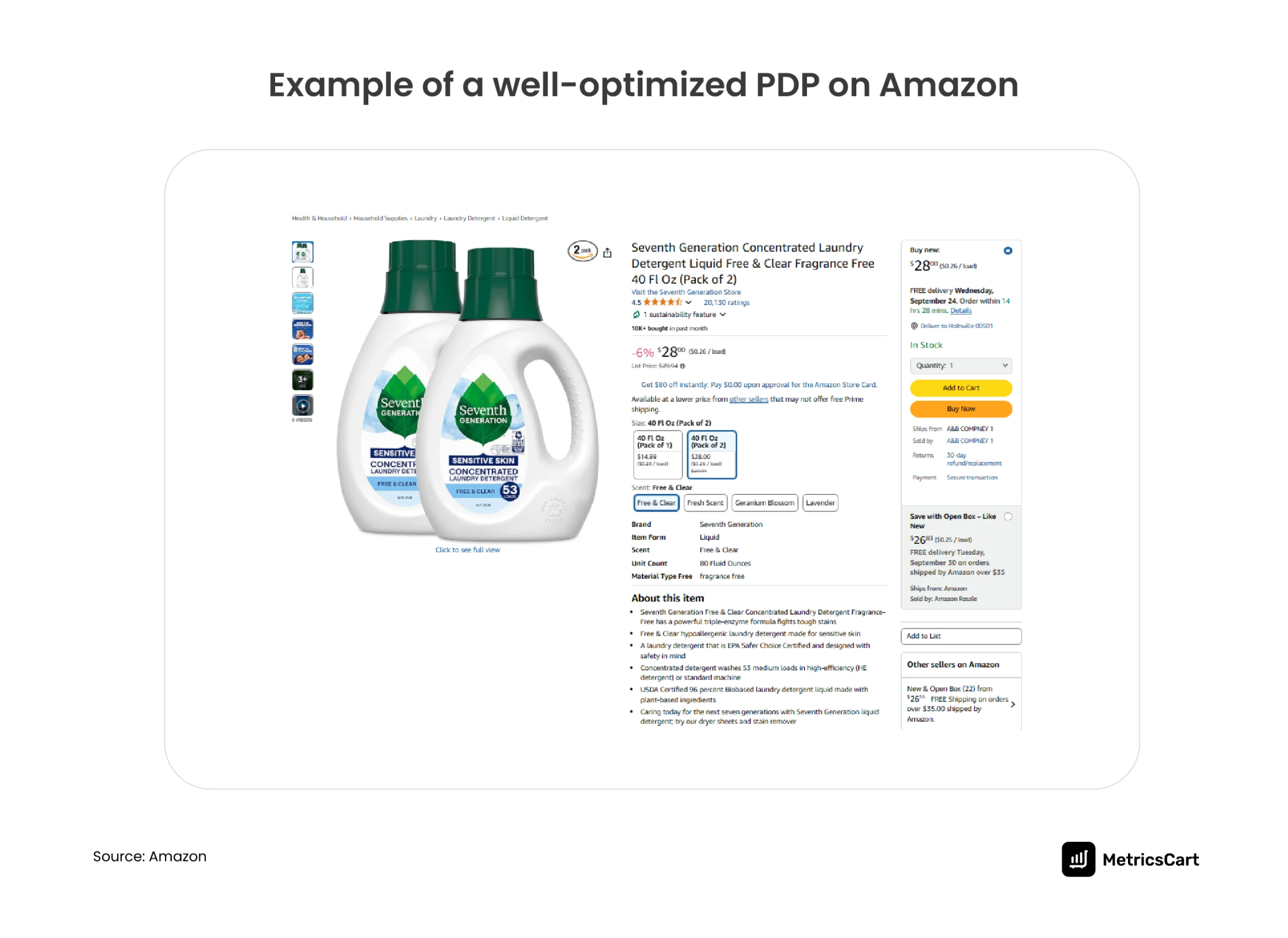
When done well, these steps ensure your product is discoverable and persuasive, improving both traffic and conversions.
Take Advantage of Reviews and Ratings to Build Brand Image
Shoppers trust other shoppers more than brand copy. NLM study reports more than 93% of consumers regularly read online reviews and rely on the comments for their purchasing decisions. Encourage verified reviews through post-purchase follow-ups, sampling campaigns, and loyalty programs.
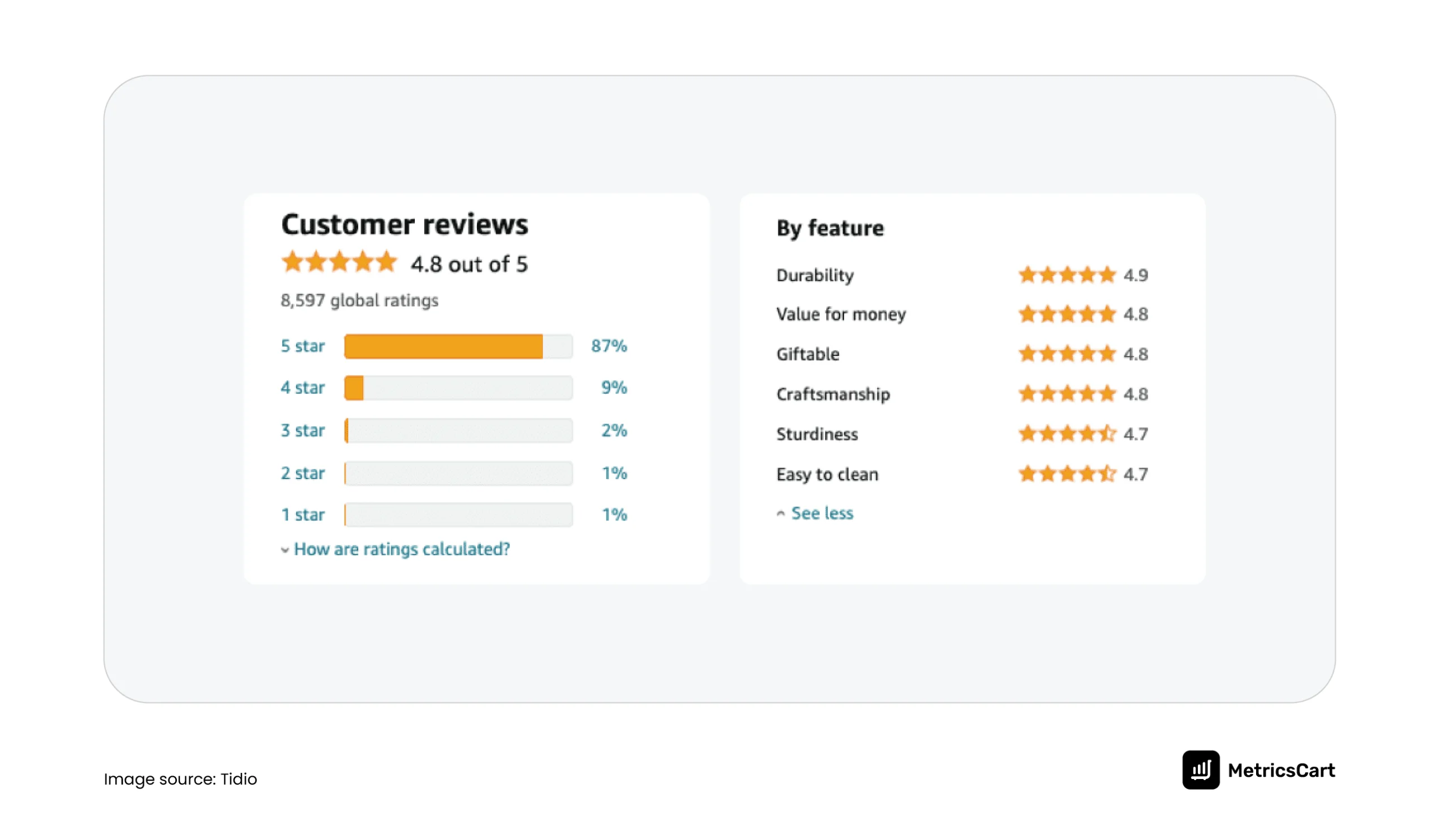
Also, don’t ignore negative reviews. Responding to them promptly not only improves brand credibility but also signals transparency, which builds trust with future buyers.
READ MORE | Why MetricsCart is Your Ultimate E‑Commerce Review Tracking Solution?
Ensure Price Integrity & Promotion Consistency
Shoppers compare prices across sites in seconds, and they quickly notice when your product costs less on one retailer and more on another. That kind of inconsistency makes people question your brand and can push them straight to a competitor.
The same goes for promotions that don’t line up. If a discount runs on one platform but not another, the campaign loses impact and customers feel confused. The fix is having clear visibility into how your products are priced and promoted everywhere they are listed. You may use a reliable price monitoring tool like MetricsCart to track price changes in real time, spot MAP violations, and flag mismatched offers before they hurt sales.
This will help you protect margins, maintain consistent campaigns, and give shoppers the confidence that they are getting a fair deal, regardless of where they shop.

Align Retail Media Investment with Profitability
Retail media can drive huge visibility, but not every ad dollar brings the same return. Many CPG brands pour money into sponsored placements without checking if the products being promoted are actually profitable.
For example, pushing a low-margin SKU with heavy ads may increase sales volume, but it eats into earnings instead of growing them. The smarter move is to connect retail media spend directly to profitability.
By tracking margins alongside performance metrics like share of search and conversion rate, you can focus spending where it truly drives both sales and profit.
Monitor Availability & Assortment to Prevent Stockouts
A well-optimized PDP means nothing if the product is out of stock. Stockouts don’t just lead to lost sales; they also weaken your rankings in retailer algorithms. Assortment gaps further prevent your brand from meeting consumer demand in all its forms (sizes, flavors, bundles).
Regularly auditing availability across platforms and using predictive analytics for demand forecasting helps prevent costly stockouts. Brands that master availability see up to a 15% lift in conversion rates.
READ MORE | Out of Stock Monitoring Software: Because Empty Shelves Don’t Sell
Measuring the Success of Your CPG Brand Strategy
The effectiveness of any CPG digital shelf strategy comes down to how well it is measured. Tracking a few core KPIs that matter most in eCommerce for CPG brands helps you move beyond guesswork and see exactly what is driving results. It includes:
- Traffic: Measures how many shoppers are landing on your product pages, showing how well you are capturing visibility.
- Conversion Rate: Tracks how many of those visitors actually purchase, reflecting the strength of your PDP content, pricing, and reviews.
- Share of Search: Shows how often your products appear in top search results compared to competitors, a direct indicator of digital shelf visibility.
Other metrics worth monitoring include stock availability rates to flag costly outages, price compliance across retailers to prevent margin erosion, and review velocity to understand how quickly shoppers are leaving feedback. Together, these signals provide a comprehensive view of your CPG digital shelf health.
Digital Shelf Optimization for CPGs: The Path to Growth
Digital shelf is the new battleground for CPG brands. Winning it requires more than simply being present. It requires being optimized, consistent, and trustworthy across every shopper touchpoint.
And to do digital shelf optimization for CPGs, you need more than just a checklist. You need tools that deliver real-time insights, automate tracking across multiple retailers, and highlight gaps in visibility, pricing, and availability.
Platforms like MetricsCart provide exactly that, helping brands monitor share of search, price compliance, and product assortment in one place. With actionable insights at your fingertips, teams can respond faster, make smarter decisions, and turn the digital shelf into a true growth engine.
Optimize Your CPG Digital Shelf Now.
FAQs
Digital Shelf Optimization for CPGs is the process of improving how products appear, perform, and convert across online marketplaces and retailer websites. It involves optimizing PDPs, ensuring price consistency, monitoring availability, and aligning retail media with profitability, so that CPG brands remain visible, competitive, and trustworthy in e-commerce.
Brands should track KPIs like traffic, conversion rate, and share of search. Secondary metrics include stock availability, average ratings, and promotion compliance. Digital shelf analytics platforms like MetricsCart make this easier by consolidating these insights into dashboards and real-time alerts.
Yes. Digital shelf optimization strengthens an omnichannel strategy by ensuring product information, pricing, and promotions remain consistent across online and offline touchpoints. This builds shopper confidence and avoids the confusion caused by mismatched offers across channels.
Examples include updating product titles with high-intent keywords, adding lifestyle images to PDPs, responding to negative reviews, monitoring MAP compliance, and aligning retail media with profitability. Brands that consistently apply these practices see measurable improvements in search visibility and sales.
MetricsCart gives CPG brands complete visibility into their digital shelf by tracking real-time pricing, promotions, availability, reviews, and search performance across major retailers. This allows teams to act quickly, protect margins, and align digital shelf strategies with growth goals.

